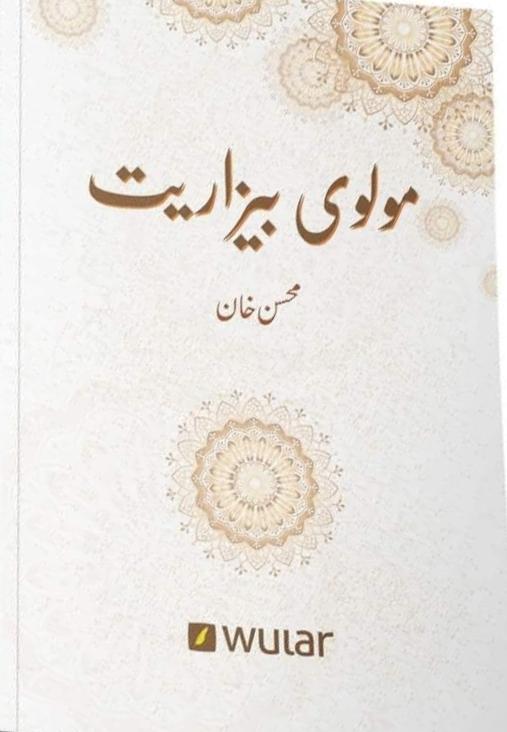
Molvi Bezariyat
Shuja Mushtaq / Anantnag
"Molvi Bezariyat" by Brother Mohsin Khan offers a critical and thought-provoking examination of the current state of the Muslim community, with a particular focus on the role of religious scholars (clerics) and the multifaceted challenges they face. Br. Mohsin presents a comprehensive analysis of the internal and external issues plaguing the community, such as sectarianism, educational deficiencies, and intellectual decline, while proposing solutions rooted in historical precedent and rational discourse.
Br. Mohsin's central thesis revolves around the harmful impact of narrow-minded jurisprudential perspectives and the ensuing sectarianism within the Muslim community. He contends that this internal division severely hampers the community’s ability to address more significant external challenges. By drawing parallels with the golden era of Islamic civilization, Br. Mohsin underscores the importance of broad-mindedness, intellectual rigor, and unity.
The book delves into sectarianism, identifying it as a primary cause of division and discord. Br. Mohsin Khan criticizes the mutual hostility, prejudice, and futile debates that have become prevalent, noting their similarity to historical divisions among Jews and Christians. He offers historical examples, such as the respectful disagreement between Imam Shafi'i and his student Yunus Sadafi, to illustrate that differences in opinion need not lead to enmity or division.
Br. Mohsin Khan’s critique of current religious jurisprudence is compelling. He argues that an overemphasis on minor issues, like specific prayer practices, has led to unnecessary divisions and a lack of broader vision. He cites historical figures like Imam Malik, who refused to impose his jurisprudential views across the Caliphate, recognizing the diversity of thought and practice within the Muslim world. This perspective underscores the need for contemporary scholars to adopt a more inclusive and expansive approach to jurisprudence.
A poignant section of the book addresses the educational system within the Muslim community. Br. Mohsin Khan highlights a troubling trend where the brightest children are directed towards secular education, while those less successful are pushed into religious studies. This, he argues, perpetuates a cycle of intellectual decline within religious institutions. He calls for strict academic standards in religious education to ensure that capable individuals are trained to become future scholars who can effectively address contemporary challenges.
Despite his critiques, Br. Mohsin Khan emphasizes that the solution is not to undermine clerics but to support them against liberal movements seeking to marginalize religious discourse. He highlights the historical role of clerics in preserving Islamic tradition and argues that their presence is vital for maintaining religious and moral standards in society. Br. Mohsin Khan urges the community to defend clerics against unjust criticism and to recognize their essential role in upholding the Islamic scientific tradition.
Unity is a recurring theme throughout the book. Br. Mohsin Khan laments the lack of solidarity among Muslims, contrasting it with the unity seen among other religious groups. He argues that Muslims must transcend petty sectarian disputes and work together to face external challenges. The book cites Quranic verses and historical examples to reinforce this message, advocating for an inclusive approach that accommodates diverse jurisprudential schools and perspectives.
"Molvi Bezariyat" is a compelling and insightful critique of the current state of the Muslim community. Brother Mohsin Khan’s analysis is both rigorous and compassionate, identifying key issues and proposing thoughtful solutions. His call for broader jurisprudential perspectives, stricter educational standards, and unity among Muslims is timely and necessary. By drawing on historical precedents and emphasizing the importance of intellectual and moral integrity, Br. Mohsin Khan provides a roadmap for addressing the internal and external challenges facing the Muslim community today.
This book is essential reading for anyone interested in understanding the complexities of contemporary Islamic thought and the role of religious scholars in shaping the future of the Muslim world. It is a clarion call for introspection, unity, and a return to the intellectual rigor and moral clarity that once defined Islamic civilization.
